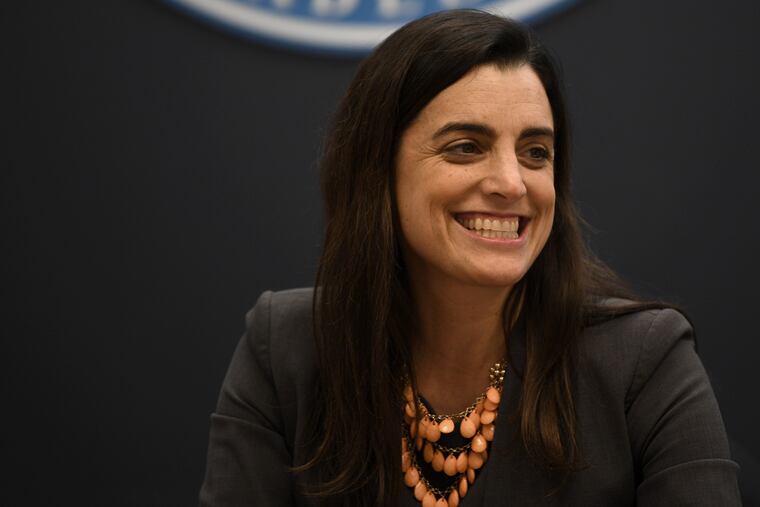City Hall, stop the dysfunction and balance your checkbook | Editorial
It's as if the city is unable to operate under anything but a mindset of scarcity and panic, so it makes sure the systems – like basic financial controls – stay dysfunctional.

Five years ago, columnist Helen Ubiñas coined the term "the Philly Shrug" to celebrate what she called "that maddening whatdya-gonna-do?" attitude that all but ensures that nothing that needs changing in this city gets changed.
In the city, the shrug leads to a tolerance of every ill, ranging from litter to gun violence. City Hall's brand of shrug has in the past helped created a culture of pay to play, ethics breaches, and corruption.
Now there's a new mess stemming from this indifference. A report by Controller Rebecca Rhynhart shows the city's ability to keep a clean and ordered set of financial books is seriously compromised. It conducted an audit of "internal controls," the safeguards for making sure that all the money that comes in — $9.9 billion last year — is accounted for and the money that goes out is documented, and that occasionally someone actually balances the checkbook.
A series of jaw-drawing discrepancies between accepted accounting procedures and reality include a failure to properly reconcile cash accounts, failure to transfer funds between bank accounts in a timely fashion, and allowing unauthorized staff to alter payroll and tax revenue records.
In all, the errors total nearly $1 billion, and that's on top of the $33 million that was recently discovered missing – though no one is sure of the exact figure – because the city doesn't reconcile its books.
The city has answered the report with an 18-page response, and the mayor has announced a Reconciliation Task Force, but the controller wants more urgency, with a timeline for fixing the weaknesses.
It's not the first time the Controller's Office has uncovered this sloppiness. In 2012, for example, the office found a similar level of errors, and similar discrepancies.
These weaknesses embody an attitude that infects other areas of the city like a cancer. A habit of accepting nothing but mediocre means, for example, that the years of shenanigans at the Board of Revision of Taxes made the property taxation system dysfunctional and untrustworthy. The city was supposed to have fixed this with the Actual Value Initiative, but recently, wide variations in assessments have raised concerns that the system has returned to being unpredictable.
That makes raising the property tax such a heavy lift for City Council-– and why it didn't buy into the five-year school budget requested by the mayor, to be funded in part by a property tax hike. The resulting funding gap may not hit the schools right away, but the money was intended to radically change the schools: to allow them to operate without the threat of a looming deficit, and be able to build on improvements rather than run around in a panic cutting at the eleventh hour.
It's as if the city is unable to operate under anything but a mindset of scarcity and panic, so it makes sure the systems – like basic financial controls – stay dysfunctional.
The lack of financial controls also shows a blatant disrespect for our money. No other city of magnitude behaves like this. For all the city's strengths, until we stop shrugging away these weaknesses, we are doomed to be taken for a second-rate city.